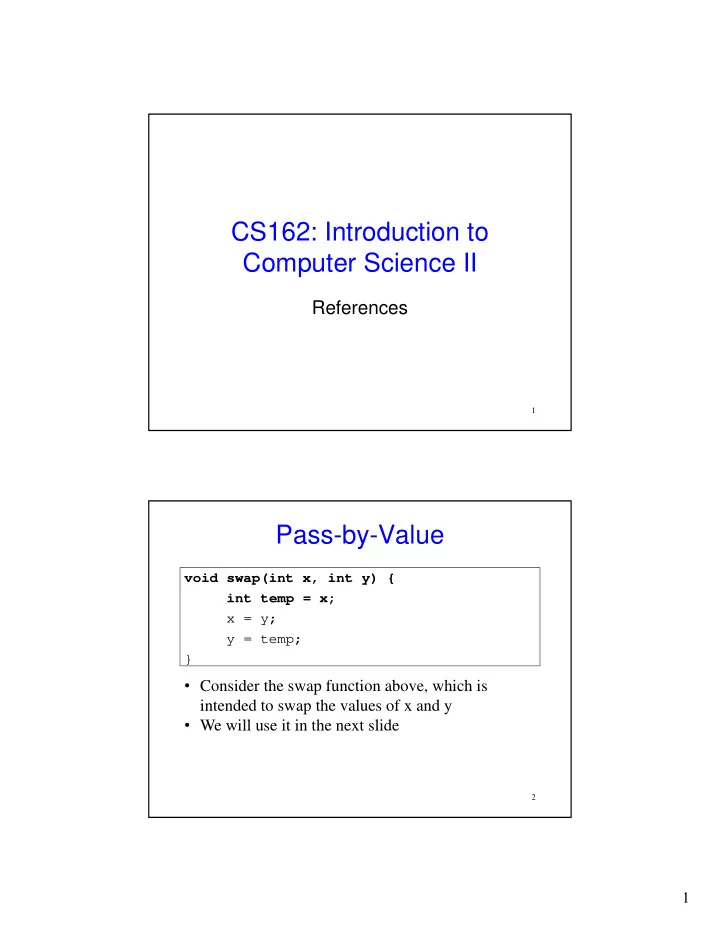

CS162: Introduction to Computer Science II References 1 Pass-by-Value void swap(int x, int y) { int temp = x; x = y; y = temp; } • Consider the swap function above, which is intended to swap the values of x and y • We will use it in the next slide 2 1
Pass-by-Value int main() { int a = 10; int b = 20; swap(a,b); std::cout << "a = " << a << " b = " << b << std:: endl; } • What gets printed out? a = 10 b= 20 • What happened? 3 Pass-by-Value void swap(int x, int y) { int temp = x; x = y; y = temp; } • When swap(a,b) is called: • The value of a is copied into local variable x • The value of b is copied into local variable y • The swap function executes (local variables x and y are swapped) • Nothing happens to the original values of a and b 4 2
Pass-by-Value • Pass-by-value: the parameters of a function hold copies of the values sent to them • Pass-by-reference: the parameters of a function hold the actual memory locations of the values sent to them 5 Pass-by-Value void swap(int& x, int& y) { int temp = x; x = y; y = temp; } • If you changed the swap function to pass by reference, you need to pass in a reference to x and a reference to y 6 3
Pass-by-Reference • A reference variable has an & between the data type and the variable • Eg. x and y are reference variables below // Pass by reference version void swap(int& x, int& y) { int temp = x; x = y; y = temp; } 7 Pass-by-Reference int main() { int a = 10; int b = 20; swap(a,b); std::cout << "a = " << a << " b = " << b << std:: endl; } • If you run the pass-by-reference version of swap, you now get: a = 20, b = 10 8 4
Pass-by-Reference • You can also accomplish the same thing as pass-by-reference if you translate everything into pointers // Pointer version void swap(int* x, int* y) { int temp = *x; *x = *y; *y = temp; } 9 Pass-by-Reference • And for the pointer version, you also need to call swap with the address of a and b int main() { int a = 10; int b = 20; // This is the pointer version of swap swap(&a,&b); std::cout << "a = " << a << " b = " << b << std:: endl; } 10 5
Const • If a reference variable is declared const, it means the reference contents cannot be changed • eg. the function foo doesn’t change the variable x // This is a silly function but it’s just // an illustration int foo(const int& x) { return x*x; } 11 Const • If we make x and y const references in the swap function, it will not compile • This is because x and y are modified by the swap function // Won’t compile void swap(const int& x, const int& y) { int temp = x; x = y; y = temp; } 12 6
Recommend
More recommend